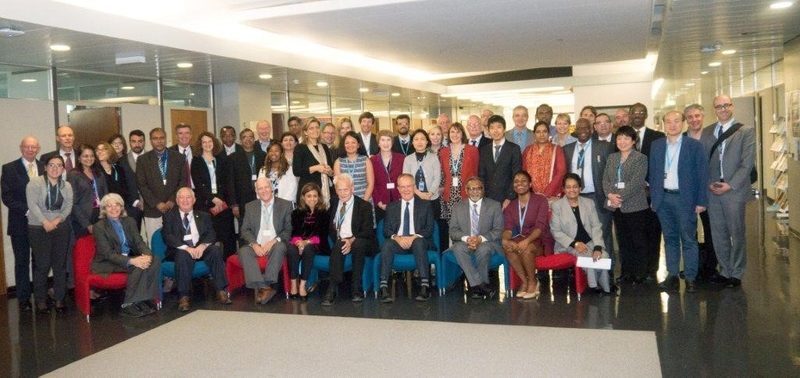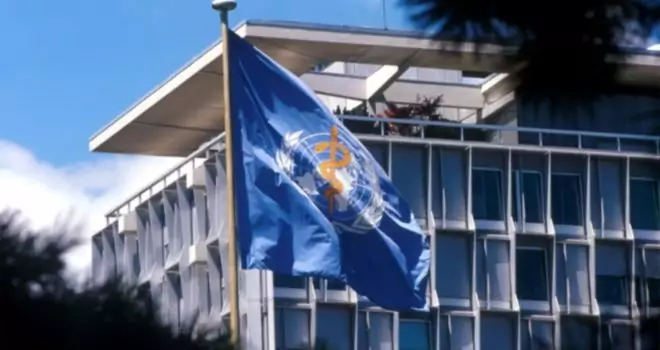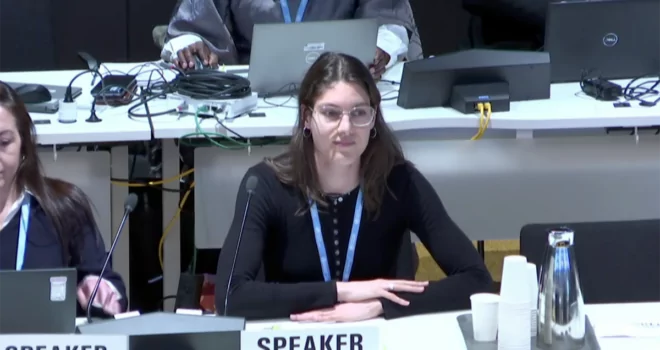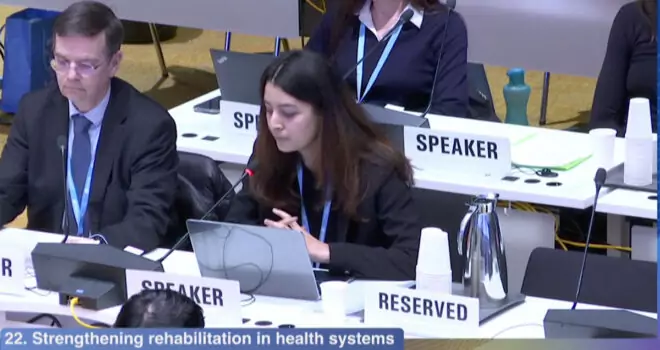
From 28-30 October, the World Health Organization (WHO) hosted a Strategic Technical Meeting on the Management of Cardiovascular Disease (CVD) at its headquarters in Geneva. International experts on heart disease and stroke convened to discuss how existing resources can be used to scale up CVD management across different resource areas, as well as to identify critical gaps in healthcare provision and policy.
The World Heart Federation (WHF) presented several sessions on global CVD advocacy and control to the audience of clinicians, epidemiologists, researchers and public health specialists.
Dr Salim Yusuf, WHF President, acknowledged the broad range of skills and resources needed to manage CVD. He emphasized the duty of all actors to raise awareness of CVD, through measures such as WCC 2016 and World Heart Day, and the special task of advocates to engage with the United Nations and WHO. Dr Yusuf called for colleagues to support WHF’s work in knowledge translation and implementation of science and policy, focusing on the value of health alliances and clear communications.
Professor David Wood, WHF President-Elect, and Dr Pablo Perel, WHF Senior Science Advisor, gave presentations on WHF’s Roadmaps, which provide an innovative framework for the management of CVD incorporating important cross-cutting themes, including raised blood pressure, secondary prevention and tobacco control. You can find out more about the WHF Roadmaps here.
Rheumatic heart disease (RHD) was also discussed at length, with the RHD Action Alliance represented by WHF and RhEACH, who spoke on the importance of managing CVD across all age groups. Dr Liesl Zühlke (RhEACH) explored RHD as a ‘disease of the lifecourse’, affecting childhood, adolescence, adulthood, pregnancy and the elderly. She emphasised that the management of RHD is relevant across disease areas; multiple actors must come forward and claim responsibility for preventing and controlling RHD, including the WHO, which should integrate RHD further into its existing strategies.
Johanna Ralston (WHF CEO) also spoke on the importance of including RHD in the wider health agenda and argued persuasively that RHD is one indicator of health inequality that we are duty-bound to address.
The WHO Technical Meeting resulted in concrete outcomes and recommendations about the management of CVD, including:
– The need for collaboration and focused leadership around clearly defined targets and outcomes
– A comprehensive approach to managing heart disease, which takes into account the social determinants of health
– Increased capacity of healthcare workers to understand and use internationally recognised guidelines for heart disease
In addition was the opportunity to welcome new actors to the CVD management movement. The combination of clinicians, researchers, epidemiologists and policy-makers allowed dynamic and varied perspectives on heart disease to coexist in a way that reflects the multisectoral approach that we need to adopt in order to achieve our collective target of ‘ 25 by 25’.


